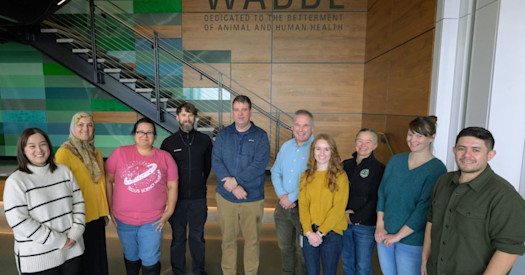
The Seattle Flu Study (SFS) and Greater Seattle Coronavirus Assessment Network Study (SCAN) are ending their active recruitment and research on July 31, 2022, after years of contributing to scientific discovery and improving public health in Seattle.
SFS researchers and principal investigators will continue to study respiratory viruses through the Seattle Flu Alliance, which is expanding to include other organizations and new initiatives. Analyses of viruses and submissions of articles to scientific publications will continue. Those researchers and investigators will continue to share their insights and achievements with the broader scientific community.
With funding from Gates Ventures, the private office of Bill Gates, the Brotman Baty Institute (BBI) piloted the SFS in 2018 to study respiratory viruses in the community with its member organizations: UW Medicine, Fred Hutchinson Cancer Center, and Seattle Children’s. In response to the COVID-19 pandemic in January 2020, Gates Ventures continued its funding and expanded the scope to include the creation of SCAN.
In collaboration with Public Health – Seattle & King County, the entities leveraged the Seattle Flu Study platform to offer COVID-19 testing to the community. As a result, the SFS and SCAN teams contributed locally, nationally, and internationally to the understanding of and response to the pandemic.
“Thanks to Gates Ventures, SFS enabled our researchers to gain insights into trends of how people acquire and transmit upper respiratory viruses,” said BBI Scientific Director Dr. Jay Shendure, who is also a professor of genome sciences at the University of Washington School of Medicine. “The new Seattle Flu Alliance will enable us to build on these insights related to the flu, SARS-CoV-2, and other viruses and offer policy makers recommendations on addressing respiratory diseases.”
The Seattle Flu Alliance will have a variety of funding sources, including the University of Washington School of Medicine, the National Institutes of Health, the U.S. Centers for Disease Control and Prevention (CDC), as well as private philanthropic donors. Its investigators will lead several studies to gain new insights into how respiratory viruses can be detected, monitored, and controlled. Those studies include:
• Husky Coronavirus Testing Research Program.
• CASCADIA study being conducted by UW Medicine, Kaiser Permanente Northwest Center for Health Research, and Seattle Children's in partnership with the CDC.
• Howard Hughes Medical Institute Collaboration Initiatives.
“We are broadening our understanding of the pandemic and the myriad of ways viruses, not just COVID-19, are transmitted,” said Dr. Helen Chu, one of the principal investigators and an associate professor of medicine at the University of Washington School of Medicine. “I am confident these research projects, as well as others forthcoming, will fill in the gaps of our current knowledge and set a course as we prepare for future outbreaks and pandemics.”
For additional information, visit https://seattleflu.org/ and https://scanpublichealth.org/.


